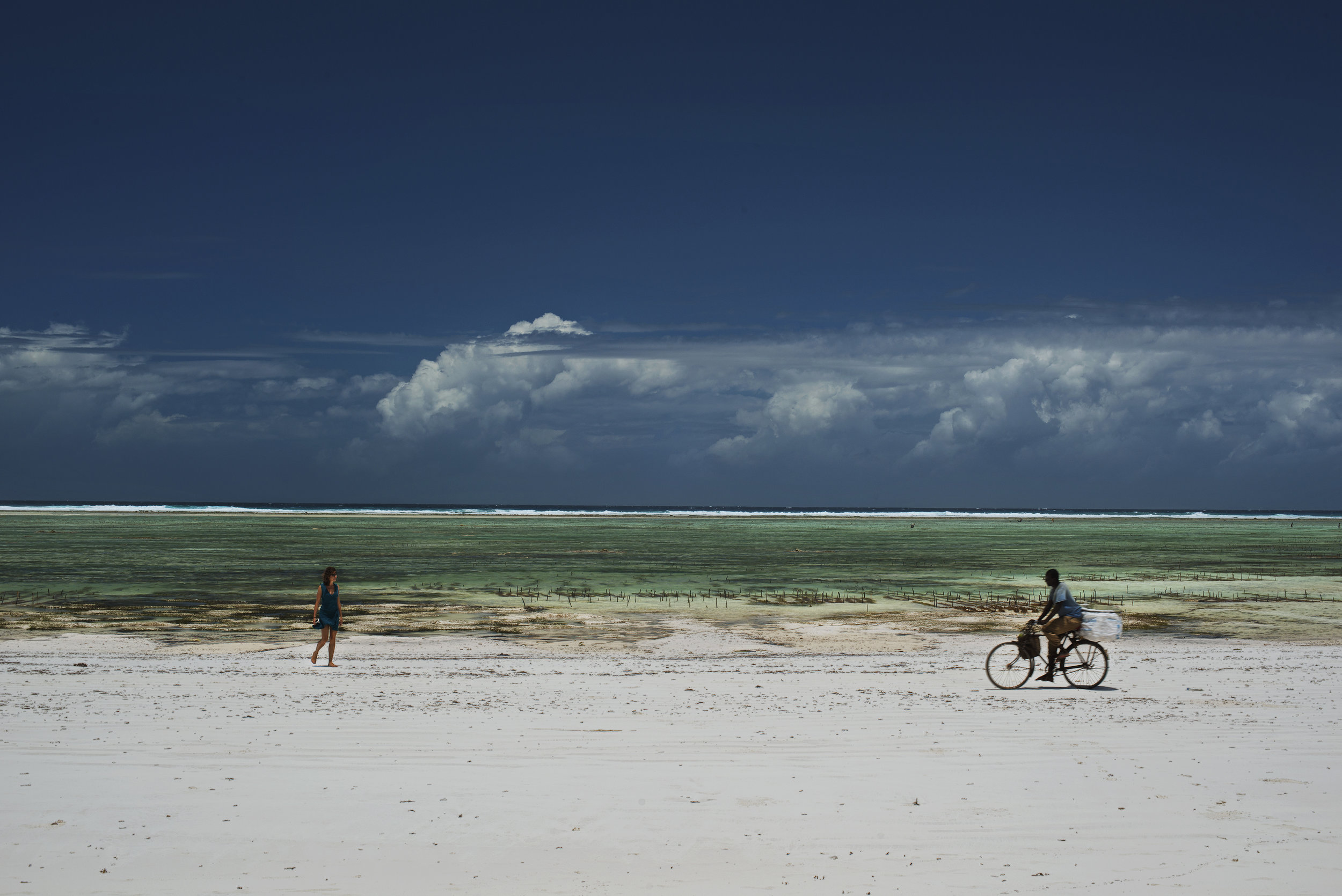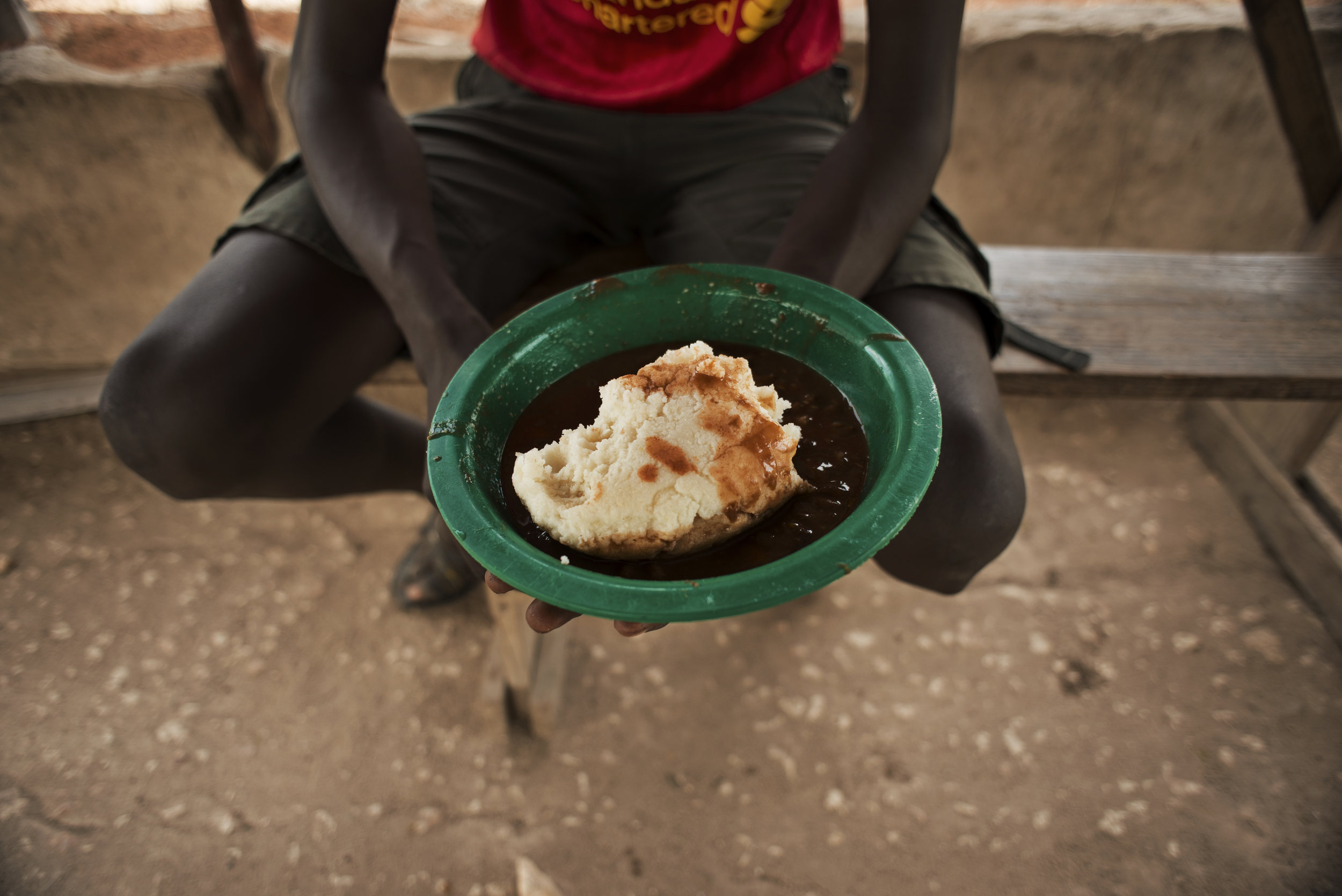PHOTO: JOSH HOBSON
Regardless of social differences or fiscal status, the standardized provision of equal education should reach every corner of every nation. Unfortunately, this is not the reality for every child.
PHOTO: JOSH HOBSON
A shortfall of national government educational funding in Tanzania, East Africa has directly affected the country's young people. Currently, schooling in Tanzania is available in both the public and private sector. Tuition fees were abolished in 2002, however, families must still pay for school supplies like writing materials and textbooks. For families who cannot afford such materials, their children miss out on the opportunities that other children might receive.
PHOTO: JOSH HOBSON
United Planet Tanzania is an organization that works to foster cultural understanding in support of global citizenship for a more cohesive world. They offer voluntary opportunities for people to take part in different international programs, ranging from education to social care. Quests, as they are called, can last from one week to up to a year, and are a great opportunity for anyone wishing to add some element of social advocacy to their travels.
PHOTO: JOSH HOBSON
United Planet Tanzania focuses on education and rehabilitation through their youth and community centres. Volunteers have the opportunity to care for children in an orphanage, teach English and computer skills, or promote youth events in the area.
PHOTO: JOSH HOBSON
PHOTO: JOSH HOBSON
Thanks to the work of organizations like United Planet Tanzania, the country's literacy rates have increased dramatically. As of 2007, children in Tanzania had the highest achievement level than that of any other East African country. There are many external factors that influence the availability of education, especially economic disruptions like drought, low food prices, and war. A lack of qualified teachers, overcrowded classrooms, and a lack of mentorship to help students pass critical examinations is also a disrupter.
PHOTO: JOSH HOBSON
PHOTO: JOSH HOBSON
PHOTO: JOSH HOBSON
PHOTO: JOSH HOBSON
PHOTO: JOSH HOBSON
Across the globe, North America also faces its fair share of educational shortcomings. In Canada, a country renowned for its equality and excellent education system, there is a rumbling undercurrent of dissent. Indigenous communities, most notably northern First Nations and Inuit communities, are not being offered the same funding or provision of resources as other communities. In a report by the Aboriginal Multi-Media Authority, the Assembly of First Nations listed 219 Indigenous communities in Canada as needing a new school. Of the schools on that list, about 70 percent claim to have waited more than five years with unanswered requests and 13 per cent have waited more than 20 years. These statistics illustrate a picture of intense inequality and demand immediate attention. Last year the was underscored in April after a reserve in northern Ontario, Attawapiskat, declared a state of emergency. While there were other issues at play, it can be argued that the lack of adequate education and opportunity for the community's young people was an underlying contributing factor.
PHOTO: JOSH HOBSON
While inequality exists on an international scale, the work that organizations like United Planet Tanzania are helping to address some of those shortfalls across the globe. With continued support, they can succeed in their efforts to bring people to the front lines of allyship and activism.
PHOTO: JOSH HOBSON














